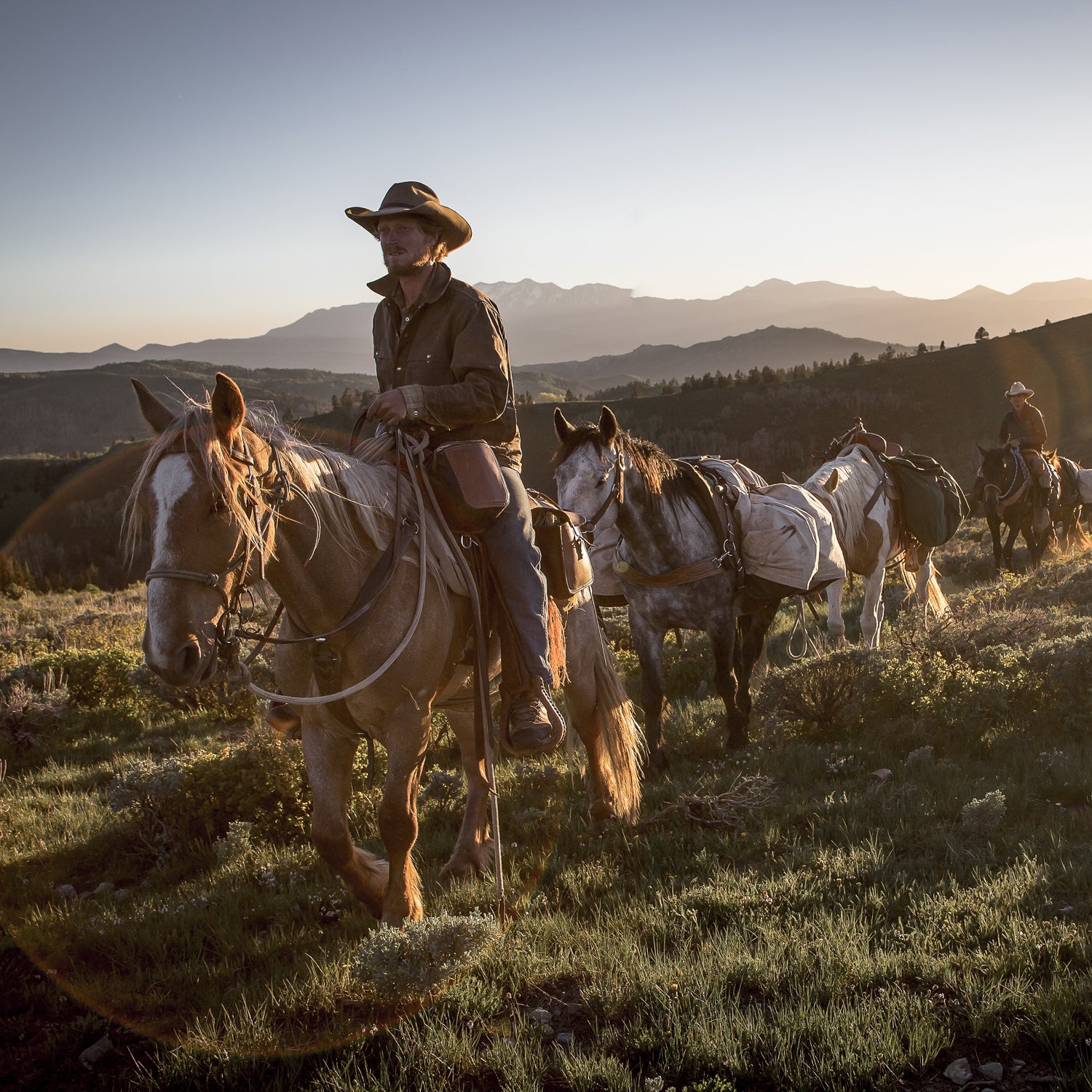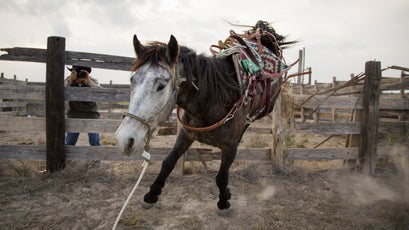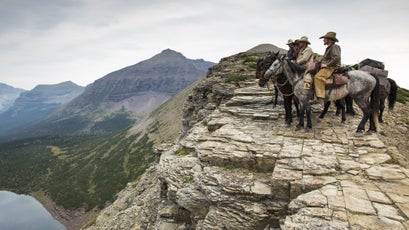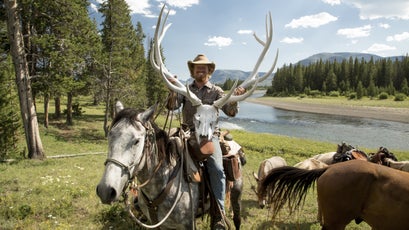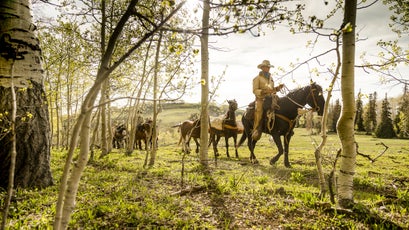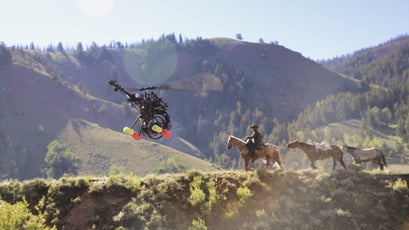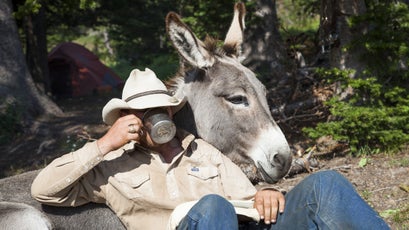Mustangs can be difficult to manage. Not just for the Bureau of Land Management, the agency charged with overseeing the majority of wild horses in the U.S., but for anyone trying to make a saddle horse out of one. In the film , which hits theaters nationwide on Friday, four college buddies in their 20s take a cavvy of mustangs 3,000 miles north from Mexico to Canada. The opening scene pretty well sums up the nature of their journey.
In the Sonoran Desert of southern Arizona, about a week into the ride, a brown mustang has a cactus burr the size of a fist attached to his quivering lower lip. The horse appears shy about letting a well-intentioned cowboy remove it with a Leatherman multi-tool. A voice in the background says, “The best thing is if you can just get in there and pull it out like a comb.”
The cowboy reaches for the cactus, and half a second later the mustang rears back on his haunches and plants a front foot in the man’s neck. Down goes the cowboy. The camera immediately pans to the right where another horse, this one with a man aboard, is bucking as though a mountain lion were in the saddle. Down goes cowboy number two, and off takes the horse, crashing hell-bent through the desert scrub, only to be recovered a short time later with his legs, face, belly and shoulders fully pinned with cactus spines.
The film is the first feature-length film directed by Phillip Baribeau, and it follows four men—Ben Masters, Jonny Fitzsimmons, Thomas Glover, and Ben Thamer—for four months as they travel almost entirely on public land from Arizona to the Canadian border at Glacier National Park. The young men all have experience working with outfitters and horse packers, but they’ve never assumed an undertaking of this size.
On one hand, Unbranded is an adventure story about long-distance horse travel—securing daily water and pasture, managing lameness issues, finding trails suitable for pack animals, and dealing with fences, in-holdings, and housing subdivisions. “It was basically a massive babysitting job,” says Masters, an Amarillo-born 27-year-old filmmaker, writer, and horse packer. “Logistically it was a nightmare. Public land in the West is the gnarly country unfit for agriculture, and that’s what we were riding through.”
On the other hand, the film sheds light on the plight of wild horses in the West: The BLM believes the land can’t support the estimated 58,000 mustangs on the range—it can handle about 26,000, the agency says. To staunch the problem of overpopulating the range, the agency gathers horses and currently keeps about 50,000 in off-range holding facilities—big, penned-in pastures in Kansas and Oklahoma—supported and paid for with taxpayer money. Still, weighing the horses’ existence against the interests of ranchers and the needs of native pronghorn antelope who share the range is not an easy task for managers.
Perhaps most refreshing is that story avoids the extreme points of view that often get the most attention in the debate over wild horses in the west.
Unbranded has been well received by audiences, winning the audience-choice awards at and the this year. Perhaps most refreshing is that story avoids the extreme points of view that often get the most attention in the debate over wild horses in the West. Mustang advocates decry that the agency as attempting to exterminate an American icon, while sheep and cattle ranchers want the country free of the feral equines.
“We made the mustangs part of the story,” Masters says. “Their past, their history, their ancestry, that’s all part of who they are, and we wanted to show the problems they’re facing today. Hopefully, through the film and our ride people will consider adopting a wild horse.”
The ride required 18 months of map reading, gear sorting, and logistical tinkering. The resulting adventure is a Kit Carson-esque tour through the mountains and deserts of the west with no shortage of drama. One horse rolls off the side of a mountain. Another dies. Cold rains drench the party, and unfiltered sun burns the men and horses. Friendships fray under adversity. Campfire whiskey drinks rekindle the bonds. By the end of the journey, every one of them looks like a frontier waddie, and all but one are ready for a life and job not in the saddle.
Unbranded brings to life a part of the west that is, more than likely, becoming scarcer and harder to find. It’s a purple-sage-and-snowy-peak romance best left to and carried out by four hardy Texans. It leaves you with the idea that Mustangs are good trail horses, and that there’s no easy way forward with wild horse management in the U.S.
“We wanted to pursue this epic dream of riding from Mexico to Canada, and I don’t think that feeling is unique,” Masters says. “Whether you’re talking about a long horseback ride like we did, or a backpacking trip, or starting a new business, I think people can relate to chasing your passion. That’s what we did.”


